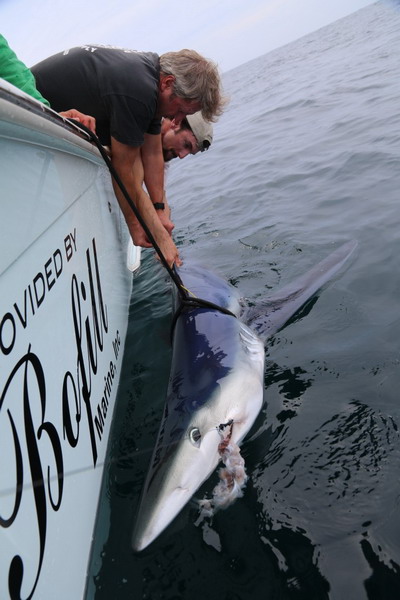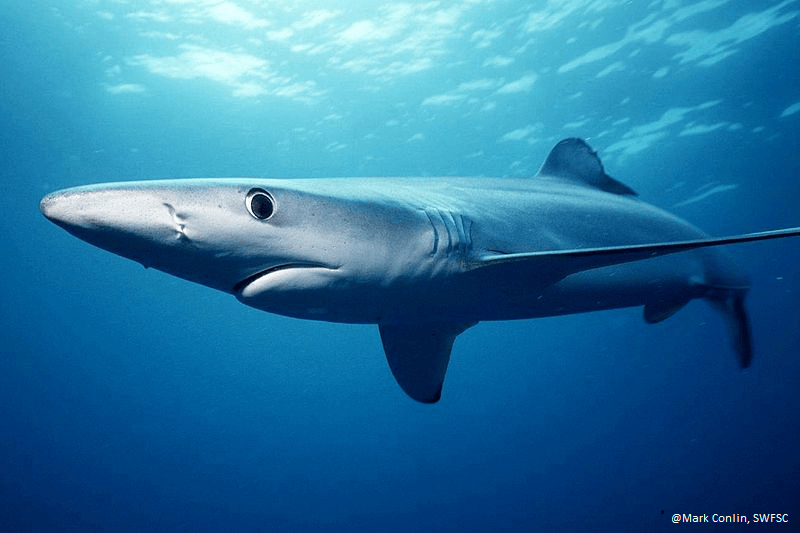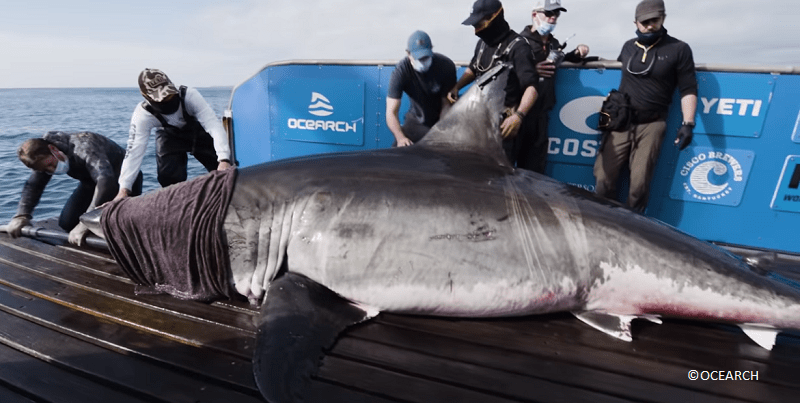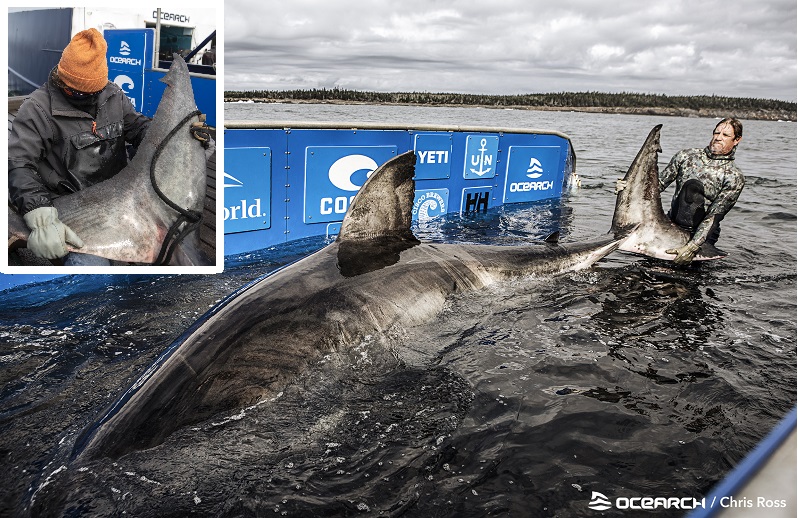Beamer the blue shark is dead. The 200 pound nine foot shark was tagged during the inaugural SharksEye Tournament, off Montauk, New York. During the event, Dr. Greg Skomal of the MA Division of Marine Fisheries tagged three shortfin makos and one blue shark. Of the four tagged, two have been confirmed dead.

Beamer was legally caught by a commercial fishing vessel that was using a longline that had 3,500 circle hooks which trialed for 60 miles off the coast of Limon, Costa Rica. The captain of the fishing vessel understood the importance of the tag and logged exactly where Beamer had been caught. Randall Arauz of Pretoma.org retrieved the tag from the captain, who he described as very cooperative.
The second tagged shark confirmed dead was Rizzilient, a mako shark. The female mako shark GPS marker shows her in a town on the coast of Portugal, near Vila do Conde.
“Given that only 4 sharks, including Beamer, were satellite tagged off Montauk, Long Island and half of them were killed when they left US waters, it tells us just how vulnerable these fish actually are.”Dr. Greg Skomal said.
OCEARCH Founding Chairman and Expedition leader Chris Fischer echoed Dr. Skomal’s sentiments saying:
“This is both shocking and sad, 50% of our sharks tagged in Montauk have been commercially caught and killed in less than a year,” adding “This does help one understand the mind blowing statistic that up to 100M sharks per year are caught and killed, some just finned for a bowl of soup. A research project that was started to advance science for conservation purposes has become a wakeup call for the global community to grasp the significant mortality rate of shark populations.”
While loosing two sharks is not what the researchers hoped for, it does help illustrate a larger problem with understanding the global impact facing sharks.
“This small experiment with just four sharks vividly illustrates the international nature of shark migration,” Dr. Bob Hueter, Director, The Center for Shark Research, Mote Marine Laboratory said. “These fish first caught and tagged in U.S. waters simply did not just stay in U.S. waters, for sharks know no borders in the ocean. This is why we must approach shark conservation not on a local, regional, or even national level, but on an international, global level.”
OCEARCH has SpoT tags on several different species of sharks that can be live tracked online at ocearch.org


